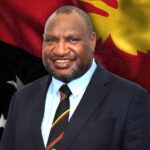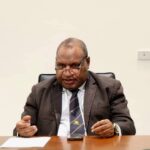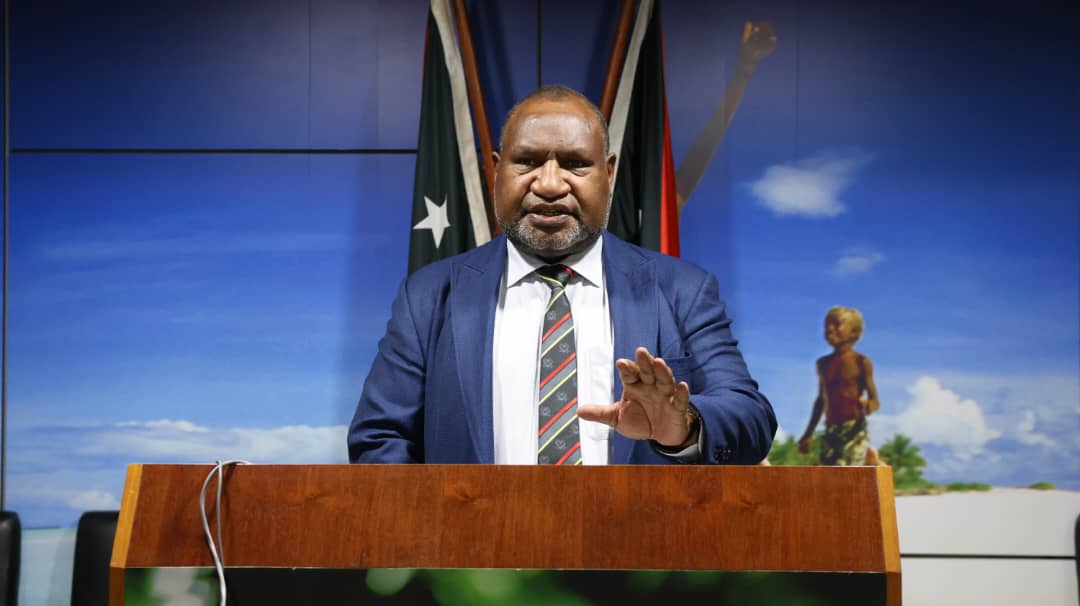As Papua New Guinea marks 50 years of independence, a rare opportunity has emerged in global commodity markets — an opportunity that Prime Minister James Marape says could transform rural economies and secure lasting prosperity for farmers across the country.
With international prices for cocoa and coffee soaring to record highs, and a favourable exchange rate boosting local earnings, Prime Minister Marape has urged farmers, cooperatives, and agribusinesses to seize this moment.
“These global market trends are a signal to every farmer in the Highlands, Islands, Momase, and Southern regions that your time has come. The world wants what we grow — high-quality, organically produced coffee and cocoa—and they are willing to pay top prices for it,” Prime Minister Marape said.
Coffee and Cocoa Prices Reach Historic Levels
In early 2025, Arabica coffee – Papua New Guinea’s primary export variety – traded above US$4.40 per pound, the highest levels in over a decade. This surge has been driven by crop failures in major producing countries like Brazil and Vietnam.
At the same time, cocoa prices skyrocketed to over US$12,000 per metric tonne earlier this year due to global supply disruptions. Prices have since stabilised at around US$8,000, still well above the historical average.
“These price increases are not just financial headlines,” Prime Minister Marape said. “They are economic opportunities for every farmer with a cocoa or coffee tree.”
Exchange Rate Works in PNG’s Favour
Compounding this opportunity is the current exchange rate. The Papua New Guinean kina is trading at approximately K4.13 to the US dollar, which significantly boosts the kina value of export earnings.
“When our farmers sell to global markets, they now earn more kina for every US dollar received. This strengthens household incomes, boosts local commerce, and supports national growth,” the Prime Minister said.
Government Backing Farmers to Succeed
Prime Minister Marape outlined how the Government is supporting farmers to convert these market opportunities into tangible gains:
1. Major Investment Through the PACD Project
The Papua New Guinea Agriculture Commercialisation and Diversification (PACD) Project, co-funded by the World Bank and Government of PNG, is investing in processing sheds, feeder roads, nurseries, and tools for smallholder farmers. Key beneficiary provinces include Jiwaka, Western Highlands, Chimbu, Morobe, East Sepik, and East New Britain.
2. National Agriculture Credit Scheme
To address financing gaps, a National Agriculture Credit Scheme is being launched to provide farmers and SMEs with access to affordable loans. The goal is to help them buy equipment, expand production, and meet export standards.
3. Export and Market Access Support
The Coffee Industry Corporation Ltd (CICL) and Cocoa Board of PNG are enhancing export pathways by supporting certifications, cooperative exports, and direct-to-buyer partnerships.
4. Branding and Value Addition
The Prime Minister highlighted the importance of quality branding and value-added exports, such as honey- processed coffee and fine-flavour cocoa.
“Our crops are grown in pristine environments, by hardworking hands, using traditional methods. These are premium qualities that global markets value. We must now brand and market ourselves as a high-quality origin,” Prime Minister Marape said.
Economic Empowerment Through Agriculture
Prime Minister Marape emphasised that agriculture remains the most inclusive path to development for PNG’s rural majority.
“Our gold is not only in the ground—it is in our gardens. This is how we build a resilient, self-sufficient economy. One where the wealth is spread, not concentrated,” he said.
He drew inspiration from Scripture to reinforce the importance of agriculture in human life and economic survival: “God, having created Adam, tasked him to tend the garden in Genesis 2:15—giving us the first indication that it is the garden that can sustain life,” the Prime Minister said. “For us in Papua New Guinea, if a million subsistence families turn to commercial farming of export crops like cocoa and coffee, we would be earning real export dollars and transforming rural economies in the process.”
Prime Minister Marape also highlighted that the benefits of agricultural productivity are being multiplied by the Government’s broader support for families.
“We are already paying for children’s education through free education, and we are supporting health care,” he said. “These are some of the biggest annual expenses for families, and we are removing that burden. So, any income they earn from agriculture becomes a direct saving—money that goes into food, shelter, and building a better life. It’s all about generating real wealth and helping our people progress wherever they are. I continue to appeal to our citizens to see this vision, this foresight, and this real possibility for transformation.”
He pointed to recent success stories such as the Kore Mani Coffee Project in Jiwaka and the cocoa revival in East Sepik as examples of what is possible with coordination, commitment, and investment.
A Call to Action for PNG’s 50th Year
“As we celebrate 50 years of independence, we must reflect not only on our history but also on our future,” Prime Minister Marape said.
“Let this be the year we take back our agriculture. Let it be the moment we empower our farmers to feed the nation and supply the world. We are not just commodity producers — we are exporters, entrepreneurs, and custodians of this great land.”







